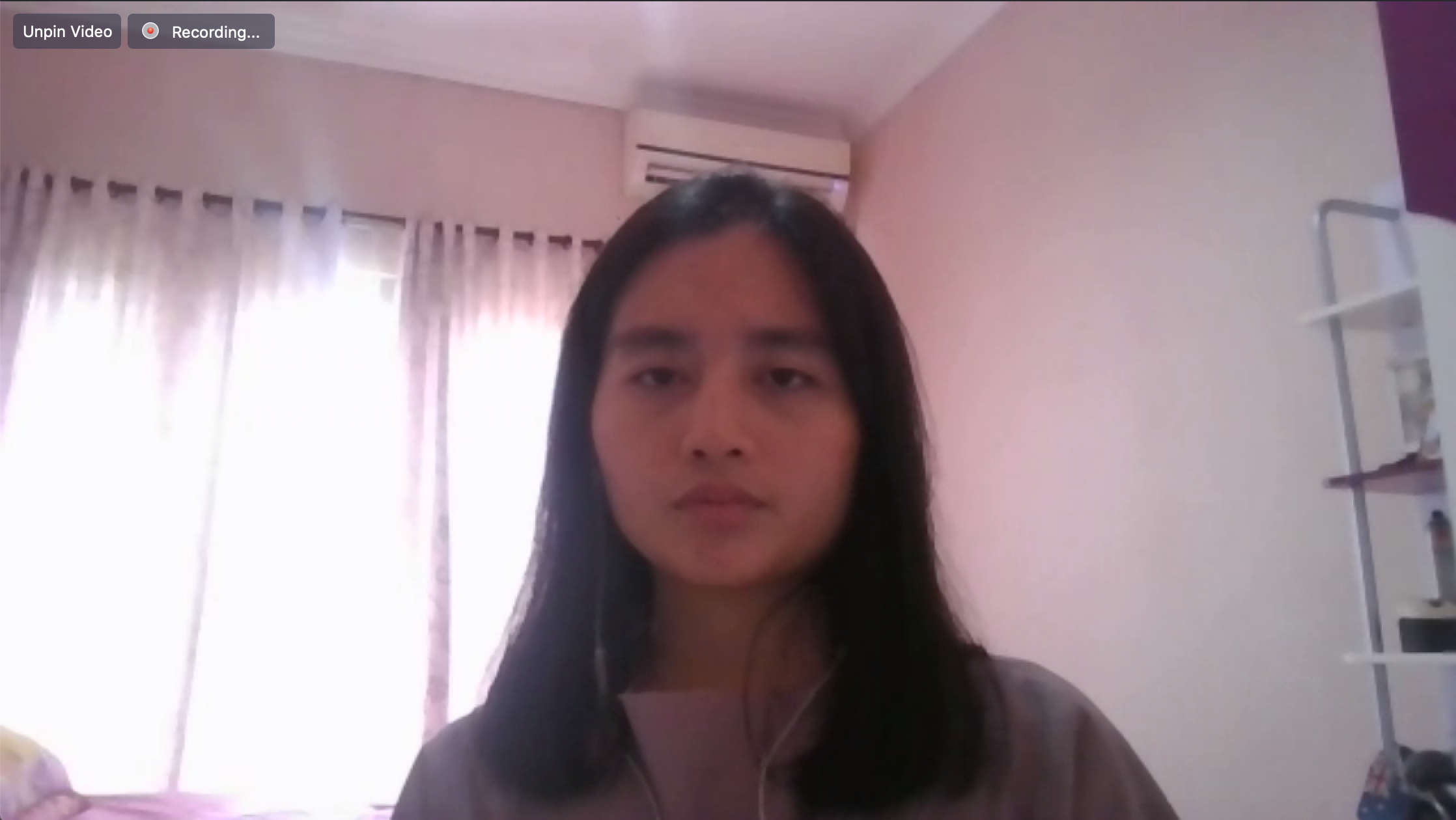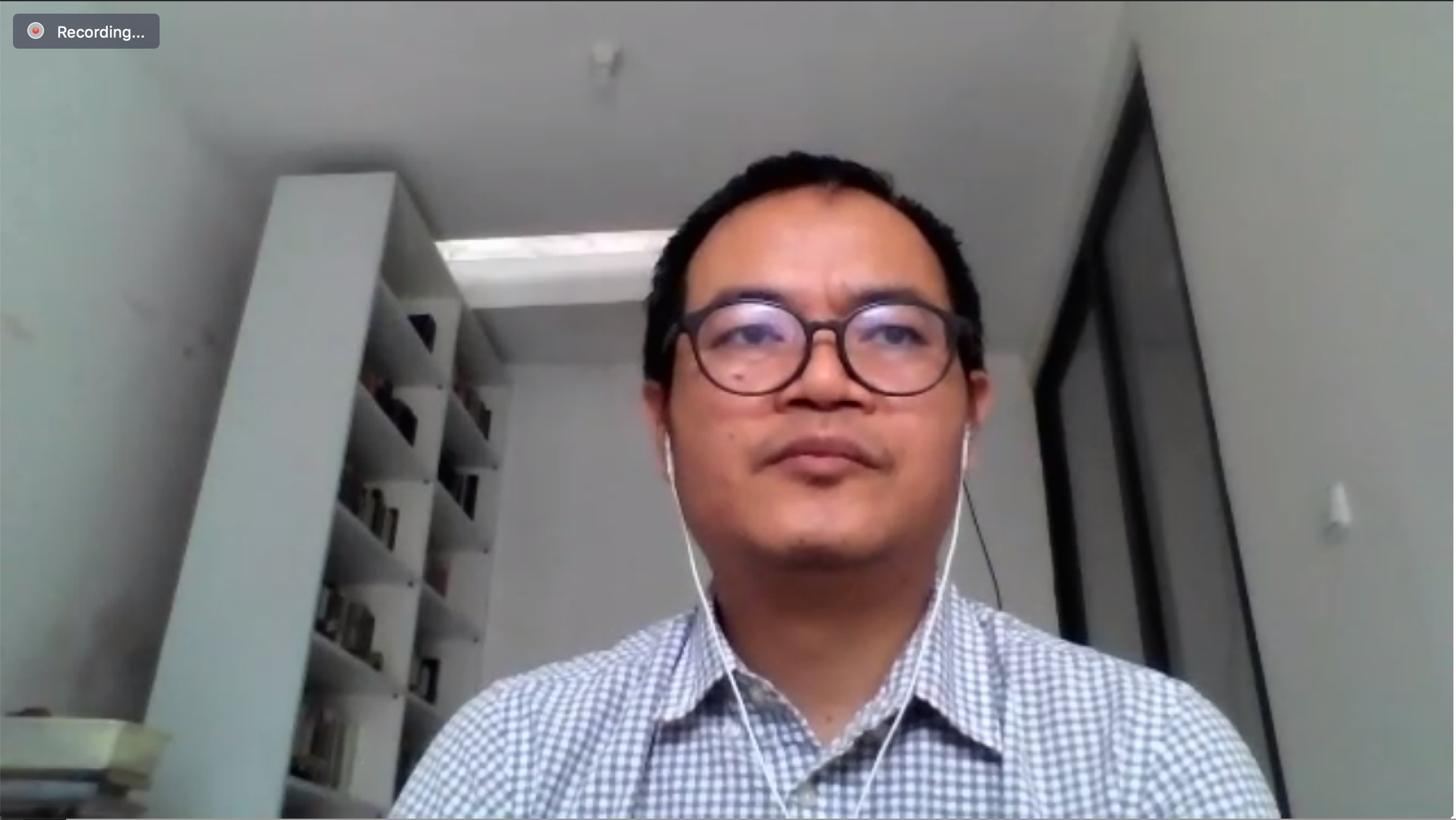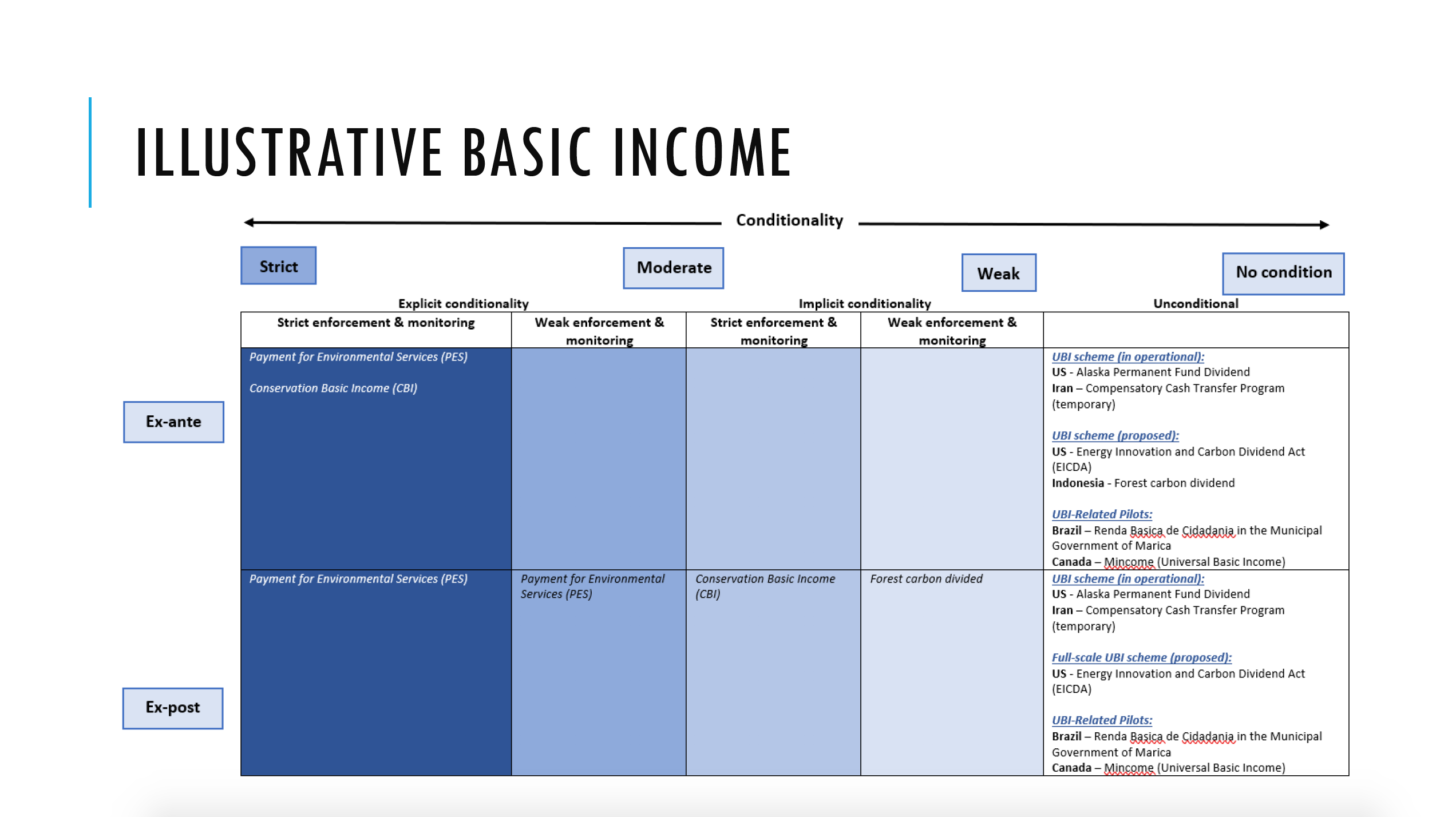The basic income (or sometimes called universal basic income) concept is when the government provides an unconditional, periodic payment to individual citizens. The Basic income (BI) concept has been discussed in the context of the environment, such as in the context of emission reduction. Ni Made Rahayu Maitri, Fatiya Rumi Humaira, and Sonny Mumbunan from the Basic Income Lab of Research Center of Climate Change Universitas Indonesia (RCCC UI) conducted a study to review environmental contexts or issues that can be linked to BI. They presented their preliminary findings on the FKP Webinar on Thursday, 30 April 2020.
Of several critical issues linking BI and the environment, there are two issues discussed in the presentation. First, the study identified the conditionality dimensions for environment-related BI. Although BI is typically given universally and unconditionally, the study noted that in the environmental context, conditionality might be needed, for example to ensure that externality is internalized. To evaluate the conditionality dimensions, the researchers constructed a framework to map existing environmental BI schemes. As an example, a BI scheme called Forest Carbon Dividend in Papua is mapped as unconditional BI as it’s given to all individuals with implicit conditionality and low enforcement.
Secondly, study addressed how BI might play a role in decoupling economic growth and environmental degradation. The researchers classified four economic growth scenarios (green growth, post-growth, no growth, and de-growth) and explored the role of BI plays in each of the scenarios.
Conceptually, BI has been in the periphery of development policy discussions. However, COVID-19 pandemic has resulted in people being unable to work and earn a living, and the provision of cash transfers have become one of the safety nets provided to help people survive during and after the pandemic. Therefore, there is now an increase in interest in the BI concept. How does the BI concept compare with the cash transfer policy? Further, how should BI be funded? These were discussed during the Q&A session on the Webinar.
For the complete presentation and Q&A session, please refer to the video and materials provided.








